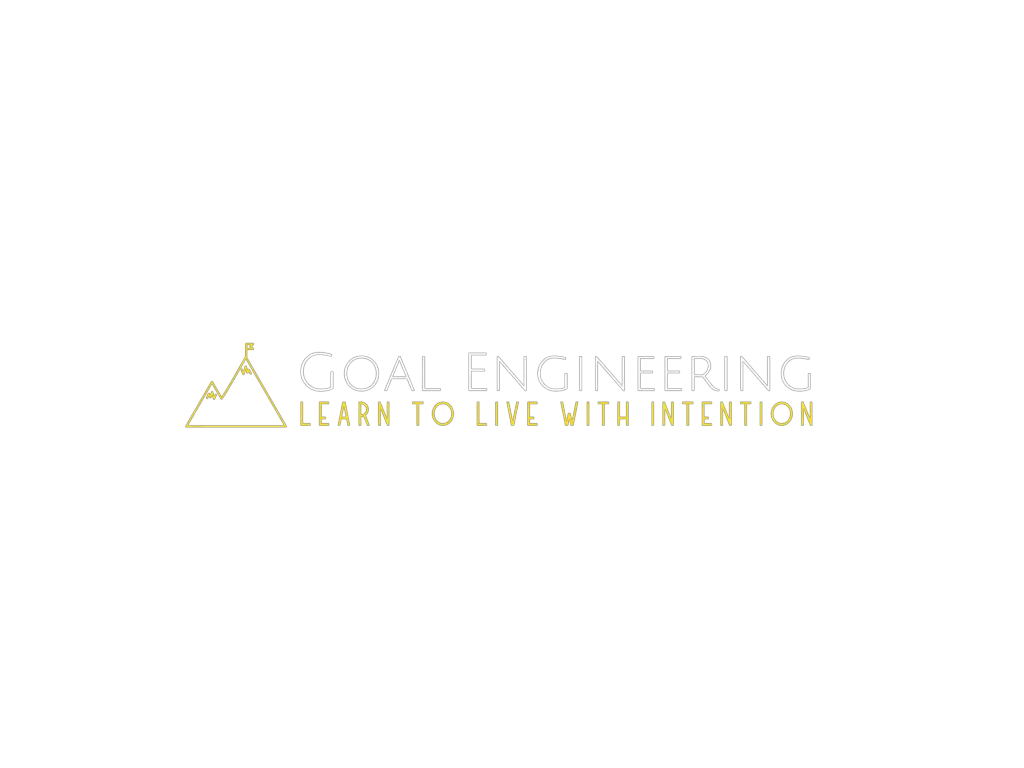You and I both want to see our dreams become reality and we know that it takes a good system to make that happen. There needs to be some order to your goals or you don’t stand a chance at improving your life.
One of the most important ways to set yourself up for success is to make sure that your goals are measurable as part of making them SMART. But it doesn’t have to be complicated.
To make your goals measurable, split them into two parts:
- Outcomes, or the result you are hoping to accomplish.
- Action steps, or the efforts you will take to reach them.
It’s easy to make your goals measurable with these two steps by asking yourself “what do I want to accomplish?” and then “what work do I need to do to make that happen?”
Let’s take a closer look at each of these components to see how to do them effectively.
Step 1: Determine What Outcomes You Want to Achieve (and Measure)
I love looking up definitions of words and phrases. It helps me understand them better so I can use them to improve my life. If you look up the definition of “goals” on Google, you get this:
“the object of a person’s ambition or effort; an aim or desired result.”
We can see our two distinct parts of measurable goals in this definition:
- “Object,” and “result,” which just means the outcome you want.
- “Effort,” which refers to the action steps you’ll take to get there.
Setting measurable goals and so you can achieve them really can be this simple. And it all starts with finding the end result, or object, you’re looking to have.
To figure this out for yourself, examine what you want to accomplish within the four areas of life to set goals in:
- Spiritual
- Relationships
- Financial
- Fitness
Let’s take a financial goal as an example. Most people want to make more money, get a promotion, or start working for themselves. These would be your objectives.
What makes them measurable is that you can “measure” whether or not you’ve done them by simply asking things like “did I get promoted?” or “am I working for myself?”
Make sure that your objective is specific, though. If you just measure “making more money,” you could earn an extra $5 one month and say that you accomplished it. But that’s not really what you want, is it? You want to make enough additional income to take your family to Hawaii and not have to worry about how you’re going to pay the bills the next month!
Get more specific by establishing that you want to make $100,00 a year. That’s definitely something you can measure, so you’re on the right track!
But measurable outcomes are a lot easier to achieve when you break them down to be things you can accomplish on a quarterly or weekly basis. So you could say that you’ll give yourself four quarters, or a year to make that much extra money. Then you know that each quarter you need to add an additional $12,500 to your yearly income.
This works for all types of goals, not just financial, and not just money, either. If you want to get more fit, you’d say something like “I’m going to lose 12 pounds in the next 12 weeks.”
Remember that your spiritual and relationship goals might be less concretely measurable, and that’s okay. It’s not easy to determine whether or not you’re actually getting closer to your spouse, for instance. But that doesn’t mean it’s not important! Even if you just ask yourself “am I closer to my spouse than I was three months ago?” that can be enough. And it’s much better than not measuring anything at all!
Now, back to breaking your goals down. The other important reason to divide your objectives into smaller measurable chunks is that it will inspire you much more if you know what you need to do, how to do it, and if it feels doable.
The components of an effective goal include the objective and knowing what action steps will take you from where you are now to where you want to be. And that’s where step 2 comes in!
Step 2: Establish Measurable Action Steps for Your Outcomes
“There are only two rules for being successful. One, figure out exactly what you want to do, and two, do it.”
– Mario Cuomo
The next crucial question to ask yourself to make your goals measurable so you can take yourself from your current position to a better future and better you is “what action steps do I need to consistently take to get to where I want to be?”
Let’s look at the example of getting healthier. If you want to be more physically fit, there are three things to focus on: diet, exercise, and rest. If you’ve set your objective to be losing 30 pounds, look at what actions to take to improve your diet, exercise, and rest to make that happen.
You might try what I’ve done recently, which is to walk twice a day for 45 minutes and eat only four small plates a day. I do three plates for each of my main meals, and have one for snacks.
This is measurable because you can ask yourself “did I do it?” at the end of each week or quarter. To make sure that your action steps are measurable, make sure that you can also ask yourself “did I do it?” at the end of each day or week.
When it comes to deciding on action steps, start with what you think will work best for you, and don’t be afraid to make it easy! One of my favorite quotes from author Jon Acuff is “make it fun if you want it done.” I’ve done this with all of my goals and it makes it so much easier to accomplish them with this mindset!
Remember: small (and easy!) actions taken over a long time will have a gigantic impact on your goals. Don’t underestimate the power of those little consistent actions. They create mountains and rivers and so many other magnificent things in this world, and they are what will help you turn your life into just what you want it to be.
All you have to do is start with any action steps that you think will work. And if you get a few weeks in and see that the scale isn’t moving, or your income isn’t increasing, don’t be afraid to modify them!
Change Your Action Steps if They’re Not Getting Results
How many times have you quit your goals for the new year in February?
Each year seems to start the same, with a lot of momentum to get to the gym every day or to eat healthily. But a few weeks in you’re bored of the monotony and you get frustrated when things don’t seem to be improving. This is where you can use the secret weapon of changing your action steps to keep you going.
If you step on the scale one week and see that it hasn’t moved, that can be super discouraging. Especially if you’ve been working hard! But have you considered that maybe you’re focusing on action steps that aren’t making a difference?
Say you’re going on walks twice a day and limiting your eating to only four small plates like I am. If the scale doesn’t budge one week, maybe you had too many carbs on your plates. Or maybe you need only three plates. It could be that walking isn’t doing enough and you need to try hiking or running or something else.
If something isn’t working, change it up! That goes for if it’s not working because you’re not seeing results and if you’re getting bored. There’s nothing like a new way of doing things to renew your commitment to your goals!
I love walking and it’s really easy to do, but I know that if I ever get bored of it I can run or play Ring Fit Adventure on the Switch.
Be careful not to try changing your action steps too soon though. Sometimes, it just takes time to see the results you’re looking for. Be patient and remember the power of those small actions over time!
Another pitfall comes when you are seeing results but you realize you don’t want to go that direction. This is when it’s time to change your outcomes.
Change your outcomes if they’re not what you want
“You may get to the very top of the ladder, and then find it has not been leaning against the right wall.”
– Allen Raine.
Sometimes, you climb a mountain only to realize partway through that it’s not where you want to be. While “the grass is greener on the other side” may be true, sometimes the grass on the side you’re on is completely dead and you know it’s time to get over to that other side.
I got three years into my career as a Civil Engineer before realizing this. When I had the epiphany that I was sitting in dead grass, it terrified me. But once I recovered from the shock of this realization, I made a plan to change the direction I was heading and got to work.
There’s no shame in quitting something that’s not working, whether it be a career or a book or anything else. If you aren’t happy or fulfilled, or if that thing isn’t making a positive difference in the world, it’s okay to let it go. You need to so you can make room for even more awesome things.
My Civil Engineering career wasn’t horrible, it just got to the point where I realized I had a lot of talents that were being underutilized. And a lot of weaknesses that I was trying to fix that I didn’t really care to improve. I’m good enough at engineering and I still do it a little today, but I changed the outcome I’m working toward and it’s been one of the best decisions I’ve ever made.
Whatever you do, make the decision to change course wisely, especially if it involves money or relationships. Take your time in deciding, make a thorough plan of how you’ll make it happen, and make sure to start small with whatever changes you do want to make.
Finishing Up
Making your goals measurable will have a massive impact on the power you have to change your life. We tend to overcomplicate it, but reaping it’s benefits doesn’t have to take that long. Within just a few minutes you can ask yourself these questions to make each of your goals measurable:
- What outcome do I want to achieve this year, quarter, and week?
- What action steps will most effectively get me to that outcome?
This may seem like a small thing, but doing it will have a major positive effect on how easily you accomplish your goals. And that right there is the key to building the life of your dreams!





